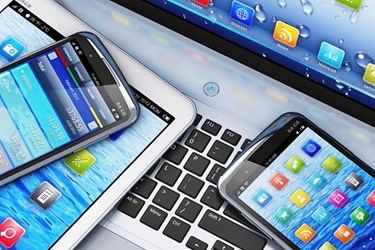FDA Solicits mHealth, Wearable Tech Info For Clinical Trials
By Jof Enriquez,
Follow me on Twitter @jofenriq

The U.S. Food and Drug Administration (FDA) is seeking input from relevant stakeholders on how new technologies — including mobile health technology (mHealth), telemedicine, and remote sensors — could be used to design and conduct better clinical trials regardless of study participants' locations.
In a notice published in the Federal Register, FDA recognizes that new technological tools are capable of "creating opportunities to overcome geographical and logistical barriers that otherwise might prevent a potential trial participant from participating in a clinical investigation, as well as facilitating the integration of research with clinical care." In addition, these tools could allow sponsors "to capture data more frequently and efficiently than would be feasible if data collection were only conducted when the trial participant visited the study site."
FDA is seeking asking comments about specific issues, including stakeholder feedback to identify clinical, cultural, business, and regulatory barriers and challenges to implementing new methods and tools to conduct research studies, and how FDA can help companies which use these tools achieve regulatory compliance.
In particular, FDA is interested in the Bring Your Own Device (BYOD) model being used in an increasing number of clinical investigations, wherein trial participants use their own devices — such as smartphones or tablets — to submit data from their homes, or any location besides the trial site. The agency says it is "aware of several groups conducting and interested in conducting clinical investigations using mobile technology and remote methods for data collection," and wants to know what challenges these groups encounter as they utilize mHealth and related technologies.
Companies such as Apple and Google are notable for having unveiled recently services that collect health information from consumers regardless of location, greatly extending the scope and data sets in clinical studies.
Apple, in collaboration with large medical institutions, claims to have over 100,000 iPhone and iOS users signed up for several trials using apps connected to the company's ResearchKit platform. The company has also enlisted cancer patients to report real-time health data using their Apple Watches. Google Lifesciences has its own health-centric wristband, which is designed specifically to extend clinical and drug studies beyond trial sites.
FDA recognizes that innovative technologies could improve trial recruitment, bring down study costs, and could improve trial reach by offering data collection and communication from the participant’s home and elsewhere, according to Clinical Informatics News.
New tools “may enhance the sponsor's ability to understand the safety and effectiveness of drugs, biologics, and medical devices; increase additional meaningful data gathering; minimize missing data; and maximize trial participation and retention,” FDA writes in the notice.
The agency also is seeking information on the challenges or special considerations in recruiting trial participants "with low levels of computer literacy or individuals who may have limited or no access to mobile technologies, computer devices, or the Internet," according to RAPS. In addition, FDA wants to know perceived barriers or challenges to obtaining and documenting informed consent or obtaining institutional review board review, approval, and oversight for clinical investigations utilizing these technologies or methods.
FDA also wants to find out participants’ concerns and level of willingness to utilize new technologies in trials, especially being subjected to continuous or intermittent remote monitoring and data collection, and the associated risk to privacy and security associated with interconnected devices.
Stakeholders are enjoined to submit comments to the public docket through Dec. 12, 2015.
